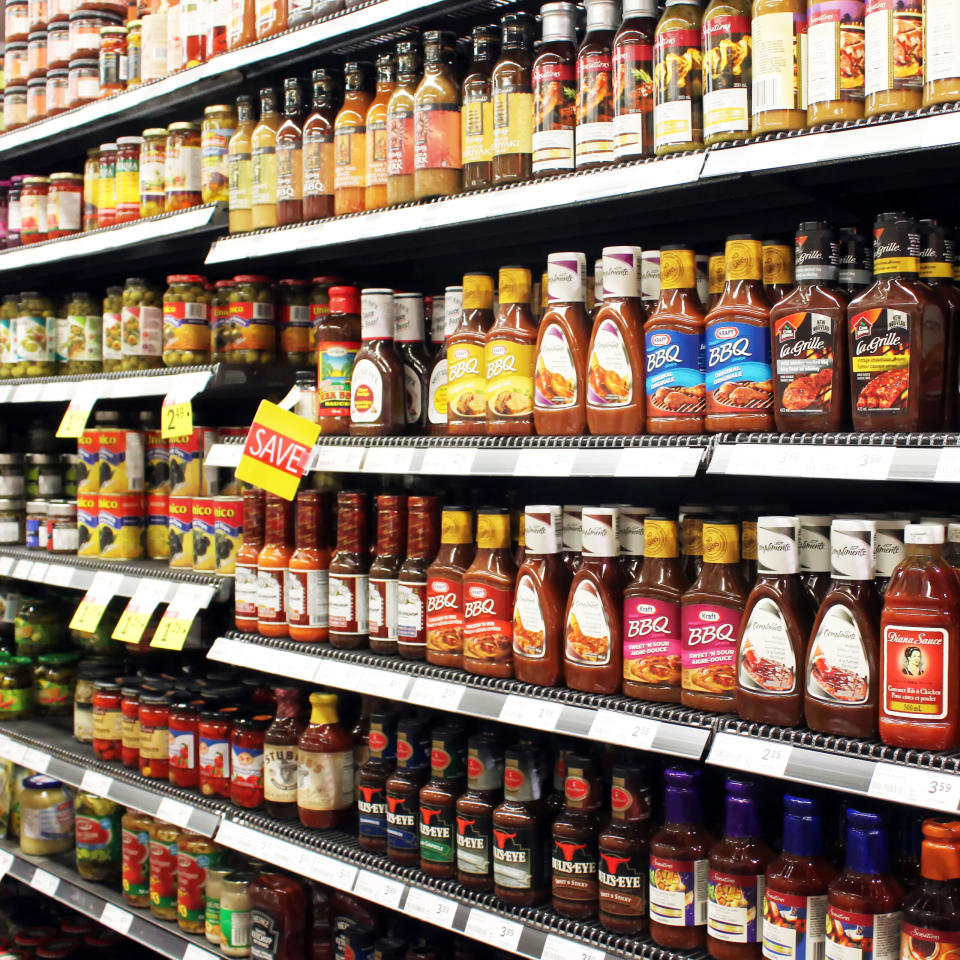The One Condiment You Really Should Not Use, According to Health Experts

This post has been updated since it was originally published on 09/08/2022 to include more expert insight.
Whether your goal is to lose weight or promote a healthier diet overall, some condiments can add more unnecessary calories and sodium than others. We reached out to registered dietitians, nutritionists and other health experts to ask which kind of condiment they believe is imperative to avoid for a more nutrient-rich diet— high-fat mayonnaise. Read on to learn more about its drawbacks and impact on your diet, as well as insight from Jesse Feder, RDN, CPT, registered dietitian, nutritionist and personal trainer at Strength Warehouse, Lisa Richards, registered nutritionist and creator of The Candida Diet, Kate Meier, personal trainer and editor at Garage Gym Reviews, and nutritionist Elizabeth Keller, MS, CNS, ACSM-PT from Well Choices.

High-Fat Mayo and its Impact On Weight Loss
Richards stresses that mayonnaise, and "especially the traditional egg-based form," should "not be considered healthy by any stretch." Other versions of mayo, which are sometimes made with healthy oils like olive oil, she says, "can be a great addition to a recipe or meal, but should still be used in moderation." The saturated fat content and emulsifiers used in "healthy varieties," she warns, can be "damaging to many organs, especially the liver." As the liver works to filter the excess fat and toxins we ingest, it can become "weighed down and under stress by high-fat condiments like mayonnaise."
Meier agrees, and says that "mayonnaise-based salad dressings are one of the worst things you can eat if you are trying to lose weight." She deems them to be "very dense with calories and rarely measured out exactly." This, she notes, makes it easy to underestimate the effect it can have on losing weight. "Just two tablespoons can add upwards of 200 calories to a salad without creating the same satiating effect that other nutrient-dense foods can, meaning you will end up eating more to become full." Feder stresses that the "creamy or oily type of condiments tend to have a large amount of fat and calories," which includes mayonnaise. "I would opt for the light versions since they are low in calories and will help with weight loss," Feder suggests, which leads us to the idea of healthier alternatives.
Be aware of other sneaky ways mayo could creep into your diet plans, such as dressings like Thousand Island. "Thousand Island dressing typically contains a combination of ketchup, mayonnaise, and sweet relish, all of which contribute to its high sugar content," Keller tells us.

Healthier Alternatives
Rather than opting for high-fat mayo, Richards says it is "best to go without this condiment or choose a healthier alternative, like whole fresh avocados." These, she says, are more "easily processed by the body and the fat found in them will be more readily digested and used as fuel." (Sounds like a win-win!) Meier agrees, and notes that when it comes to mayonnaise-based salad dressings that it is helpful to your overall health and potential to lose weight if you "trade these dressings out for a lower-calorie vinaigrette or a yogurt-based dressing." A vinaigrette will help save the calories, she concludes, and a yogurt-based dressing "will be more filling and prevent you from overeating."

